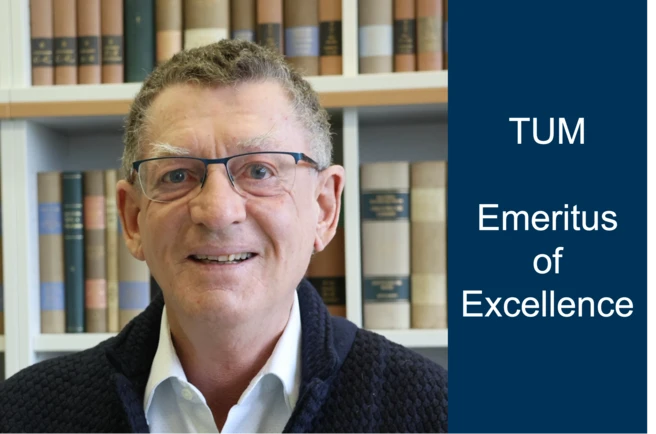After an illustrious career in both academia and industry, Prof. Bernhard Rieger retired from his role as Chair of Macromolecular Chemistry at the Technical University of Munich (TUM) in March 2025. Known for his pioneering work in polymer chemistry and sustainable materials, Rieger will now step into his new position as Emeritus of Excellence. We interviewed Prof. Rieger on his new role and his life as scientist back in March.
Rieger’s journey in chemistry began at a young age, experimenting in his home lab, and continued with self-taught studies before earning his doctorate. Reflecting on his early interest in chemistry, he said, “For me, the periodic system was like a color palette. Chemistry is the only discipline where you can turn an idea into something you can hold in your hand.” This passion for chemistry propelled him through a career that spanned roles in both industry, including BASF, and academia.
Despite no formal training in polymer chemistry, Rieger built one of the world’s leading research groups in this field. His research has been a testament to his belief that science is not just about academic achievement but also about creating tangible solutions for society. He often emphasizes, “Polymers are not the problem—they are the solution,” a mantra that guided much of his work in sustainable materials.
“You have to stimulate young people not to say, ‘OK, the professor is the God, he knows everything,’”
Throughout his career, Rieger has remained focused on bridging the gap between fundamental research and industrial application. “Our real product here is students,” he said, emphasizing the importance of mentoring over 160 PhD students, not just as researchers, but as future leaders. “A PhD is not just a title. It’s about learning to navigate complexity, follow a vision, and know when to stop.” His teaching philosophy has been centered on empowering students to think critically and creatively. Rieger has always encouraged students to see themselves as more than just producers of publications. “You have to stimulate young people not to say, ‘OK, the professor is the God, he knows everything,’” he reflected. He believes in providing his students with the freedom to explore their own ideas, saying, “If you have an idea, just do it. Don’t ask me.”
As Rieger transitions to his emeritus role, he remains committed to supporting the next generation of chemists. While uncertain about the exact future of his career, he looks forward to staying involved in research, particularly through advisory roles. “I’m very much looking forward to supporting new projects, especially in polymer chemistry,” he said. He is also eager to devote more time to personal projects, including tending to his beloved lemon and orange trees.
Rieger’s advice for new professors is simple yet powerful: “Don’t see your professor position as a job. See it as a passion.” He also encourages the next generation of researchers to focus on meaningful work, cautioning against measuring success solely by bureaucratic standards. “Be careful if you judge your success by the standards of bureaucrats,” he warned. “At the end, all the research that develops our society further—that’s what matters.”
“Don’t see your professor position as a job. See it as a passion.”
Though his retirement marks the end of an era at TUM, Rieger’s influence will continue to shape both the scientific community and the many students whose careers he helped to define. His legacy is one of creativity, collaboration, and a deep commitment to advancing both science and society.
More information and links
- WACKER-Chair for Macromolecular Chemistry https://www.ch.nat.tum.de/en/makro/team/prof-dr-bernhard-rieger/
- Prof. Bernhard Rieger Retirement Symposium https://www.nat.tum.de/en/nat/latest/article/prof-bernhard-rieger-retirement-symposium/
Press contact
communications(at)nat.tum.de
Team website
